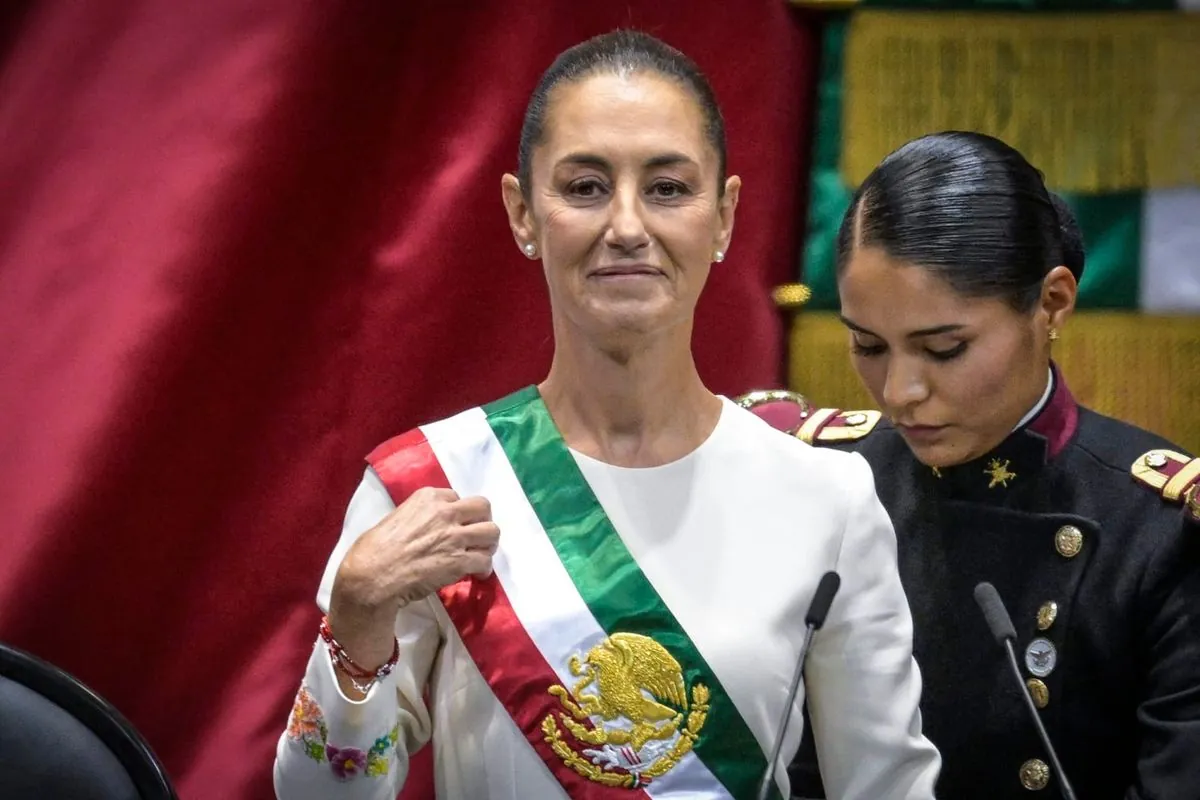Claudia Sheinbaum made history on October 1, 2024, as she was sworn in as Mexico's first female president. In her inaugural address, Sheinbaum emphasized her commitment to economic growth and poverty alleviation, while also highlighting the significance of her election for women's representation in Mexican politics.
Sheinbaum's ascension to the presidency is a testament to Mexico's progress in gender equality. The country's gender parity laws, introduced in 2014 and strengthened in 2019, have led to significant female representation in public office. Currently, women hold half the seats in Congress and comprise half of Sheinbaum's cabinet.
In her first days in office, Sheinbaum has already signaled potential departures from her predecessor, Andrés Manuel López Obrador. She announced an ambitious goal to generate 45% of Mexico's energy from renewable sources by 2030, a significant increase from the 20% recorded in 2023. This shift in energy policy could have substantial implications for Mexico, the world's 15th largest economy by nominal GDP.
Sheinbaum's approach to national security also differs from López Obrador's controversial "hugs, not bullets" strategy. Her new plan focuses on intelligence-led efforts to combat crime, targeting 10 high-violence municipalities initially.
On the economic front, Sheinbaum faces challenges with Mexico's growth projected at a modest 1.2% for the coming year. However, there are indications of potential shifts in trade policy. Mexican and Brazilian authorities have begun discussions on expanding their bilateral trade agreement, signaling a possible diversification of Mexico's trade relationships beyond its primary partner, the United States.
"I don't see why we can't grow trade with Brazil or with other countries, so we're going to do it."
The new administration's foreign policy approach, particularly regarding the crucial US-Mexico relationship, will become clearer in the coming months. However, the potential election of former US President Donald Trump in November could significantly impact bilateral ties.
In other regional news, the UN Security Council has extended its endorsement of a multinational security mission in Haiti for another year. This decision comes as Haiti, the first independent nation in Latin America and the Caribbean, continues to face significant security challenges.
Meanwhile, in Guatemala, US sanctions on Russian-backed nickel mines have had unintended consequences, leading to job losses and economic downturn in affected areas. This situation highlights the complex interplay between international sanctions and local economies in Central America's most populous country.
In Argentina, deforestation along the eastern Atlantic coast has led to an unusual "invasion" of parrots in the town of Hilario Ascasubi. This environmental issue underscores the broader challenge of deforestation in Argentina, which has lost over 22% of its native forests since 1990.
Lastly, the recent Forte International Security Conference in Rio de Janeiro highlighted evolving EU-Latin America relations. With the upcoming change in EU foreign policy leadership from Josep Borrell to Kaja Kallas, there is uncertainty about the future direction of these ties. The potential revival of the long-negotiated EU-Mercosur trade agreement remains a key topic, with Germany supporting progress while France expresses reservations.
As these events unfold, they reflect the dynamic and interconnected nature of politics, economics, and environmental issues across Latin America and its global partnerships.
